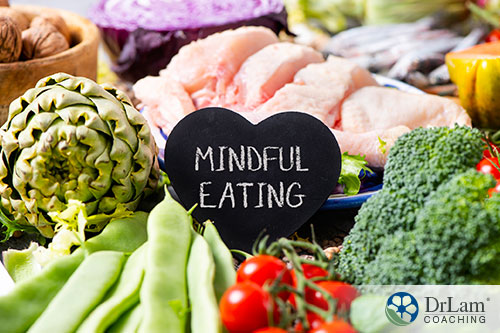 Most people know that when traveling overseas, they are likely to be exposed to unfamiliar germs. Taking care of your gut health while traveling is about knowing what makes your gut happy. It’s more complicated than just staying away from water sources polluted with industrial and agricultural runoff.
Most people know that when traveling overseas, they are likely to be exposed to unfamiliar germs. Taking care of your gut health while traveling is about knowing what makes your gut happy. It’s more complicated than just staying away from water sources polluted with industrial and agricultural runoff.
Having a healthy gut is being free from common digestive disorders. These range from bloating, gas, constipation, diarrhea, abdominal pain, and Irritable Bowel Syndrome to leaky gut. The modern lifestyle doesn’t make this easy, and maintaining good gut health while traveling is even more challenging.
However, you don’t have to be overseas to mess up your gut microbiome. In certain jobs, you are on the road all the time. This usually means you eat when you have a chance and what happens to be available.
Those who are often away from home usually have to make the most of what is available. This particularly applies to long-distance truck drivers, flight crew members, sales representatives, and tourist guides.
Not surprisingly, such a way of life is usually linked to unhealthy living habits. Statistics show that obesity, constipation, bloating, smoking, and chronic fatigue are more common in individuals who don’t stick to regular mealtimes.
A change in routine usually affects your eating habits. If you are often on the road, eating healthy becomes challenging. However, this doesn’t mean you have to eat junk food. You can buy healthy snacks at almost every gas station or visit a small-town restaurant. Foods like Greek yogurt, peanut butter, and fruits and vegetables can help you take good care of your gut health while traveling.
But, to get your microbiome to work for you rather than against you, you have to understand what it is that makes it sick.
Making good food choices, eating the foods you’re used to, and eating at regular times, is for obvious reasons, more difficult when you’re traveling.
The most common digestive problems you are likely to experience while traveling are diarrhea, constipation, bloating, and gas. These are not major health issues but can be very unpleasant.
The two main reasons for poor gut health while traveling are:
 Dehydration - It’s easy to forget to drink enough water when you’re away from home. Children and older adults usually need more to stay hydrated, but so do those involved in hard physical labor, those on certain medications, and everyone who finds themselves in a hot and humid climate. Some of the common signs you are dehydrated include fatigue, headache, constipation, dry mouth, low blood pressure, and muscle cramping.
Dehydration - It’s easy to forget to drink enough water when you’re away from home. Children and older adults usually need more to stay hydrated, but so do those involved in hard physical labor, those on certain medications, and everyone who finds themselves in a hot and humid climate. Some of the common signs you are dehydrated include fatigue, headache, constipation, dry mouth, low blood pressure, and muscle cramping.We are only beginning to understand the connection between a healthy gut and our overall health. Numerous studies show that your gut health has a direct influence on your immune system, mental health, endocrine health, and autoimmune disorders.
The good news is that your gut health doesn’t have to suffer when you’re traveling. With a little bit of effort and forward planning, you can learn what your gut needs to stay healthy. There are several steps you can take to support a healthy gut.
First, lower your stress levels. If your days are very busy, make it habit to calm down and relax at the end of each day. This is particularly important if you know you have some underlying gastrointestinal symptoms which stress is likely to make worse because it triggers changes in the gut microbiome via the gut-brain axis.
Secondly, get at least seven hours of sleep every night, because even partial sleep deprivation can trigger microbiome dysbiosis and change your metabolism.
Third, stick to your supplements and medication. Just because you’re away from home doesn’t mean you should stop taking them while traveling. Don’t stress your body by making unnecessary changes. You may enjoy the change, but your gut may not.
This is particularly important in exotic locations. Remember that cooked foods are less likely to contain pathogenic bacteria compared to fruits and vegetables that have been washed with local tap water and handled by potentially unclean hands.
To be on the safe side, take probiotics and prebiotics. This is particularly important if you have no access to nutrient-dense foods. It can also be helpful to travel with charcoal in case you get traveler's diarrhea.
Eating a balanced diet is not easy while you’re on the road but it’s not impossible. It just takes some more planning. Try to have some high-fiber foods, fruit and vegetables, and healthy fats for each meal. A balanced diet supports the friendly bacteria and this benefits your gut microbiome.
 Unfortunately, even the health-conscious can struggle to maintain good gut health while traveling because certain gut problems can trigger inflammation even if you eat healthily.
Unfortunately, even the health-conscious can struggle to maintain good gut health while traveling because certain gut problems can trigger inflammation even if you eat healthily.
There are many gut-inflammation triggers, but one of the most common ones is leaky gut syndrome.
This increasingly common digestive disorder happens when your intestinal lining becomes damaged. When that occurs, the undigested food particles and bacteria easily pass through the gut lining. Eventually, this can lead to chronic inflammation, and worse, this is a precondition for autoimmune disorders.
To avoid this problem, stay away from gluten, sugar, and bad fats. Your gut easily weakens if you repeatedly make poor food choices and eat foods your gut can’t tolerate. With a leaky gut, you are likely to develop an inflammatory-immune response even when you eat healthy foods. In which case, eating healthy doesn’t help because even nutrient-dense foods will cause inflammation.
While friendly gut bacteria aid digestion, destroy harmful microorganisms, and boost production of vitamin K, an imbalance, known as dysbiosis, may wreak havoc in your gut microbiome. Keep your gut healthy by not allowing the harmful bacteria to outnumber the friendly ones. Dysbiosis can lead to many health problems. If you suffer from this condition and start eating new healthy foods, hoping to heal your gut, you can end up with even more gut problems.
The worst time to experience gut problems is when you’re away from home. So, if you know you have digestive problems, you can do one of two things. Either fix them before the trip or take enough medication to support your gut health while traveling.
To address bacterial overgrowth, it’s best to reduce the carbs but add some natural antibiotics in your diet. For example, taking oregano oil, garlic, and probiotic-rich foods help support a healthy gut.
While yeast present your gut microbiome is normal, an overgrowth of yeast is not. It is well-known that the overgrowth of Candida albicans can trigger chronic inflammation. This is particularly dangerous if your immune system is already weak.
The best natural remedies for this problem are fermented foods, eg non-pasteurized yogurt, kombucha, sauerkraut, kimchi, etc. Certain probiotic supplements can also help but the key to a healthy gut is avoiding inflammatory foods.
 Although there are many inflammation triggers, one of the most common ones is stress. Chronic inflammation in any part of the body is directly linked to stress, and numerous studies show that reduction of stress usually leads to a gradual decrease in some of the inflammatory symptoms. This is why one of the recommendations for improving your gut health while traveling is to lower your stress levels.
Although there are many inflammation triggers, one of the most common ones is stress. Chronic inflammation in any part of the body is directly linked to stress, and numerous studies show that reduction of stress usually leads to a gradual decrease in some of the inflammatory symptoms. This is why one of the recommendations for improving your gut health while traveling is to lower your stress levels.
Stress is not necessarily bad and is simply your body’s response to feeling challenged, physically or psychologically. Stress makes your body produce anti-stress hormones in large quantities. It also temporarily shuts down your normal immune function. This helps it direct all its energy to deal with the “threat” you’re facing (real or imaginary).
In other words, your body helps you cope with stress by activating your NeuroEndoMetabolic (NEM) Stress Response. Localized inflammation is usually the most common sign that your NEM stress response is active. A typical inflammatory reaction in your gut health while traveling is a sign of your body’s inability to digest foods you’re not used to, such as heavily spiced foods.
As part of the NEM response, your immune system sends out pro-inflammatory cytokines, to attack the invader. After the attack, they quickly withdraw. However, chronic stress makes pro-inflammatory cytokines remain in your system. This is when inflammation starts affecting your other organs, so chronic stress leads to chronic inflammation.
The reason this can be very dangerous is that chronic inflammation can cause some of the most debilitating disorders. Conditions like rheumatoid arthritis, cardiovascular disease, inflammatory bowel disease, and Adrenal Fatigue Syndrome are all the result of chronic inflammation.
Safeguarding your gut health while traveling isn't as hard as it might seem. And it's absolutely essential if you want to have a enjoyable trip and return to your usual schedule in good health. Here's some easy tips for taking care of your gut on the road:
If you want some advice on traveling with AFS, then give our team a call on +1 (626) 571-1234 or click here.
© Copyright 2020 Michael Lam, M.D. All Rights Reserved.
Although this depends on where and how you travel, taking simple precautions like staying hydrated and choosing what you eat carefully can go a long way in helping you maintain a healthy gut while traveling. Eating local food is part of the fun, but getting a foodborne illness is definitely not.
